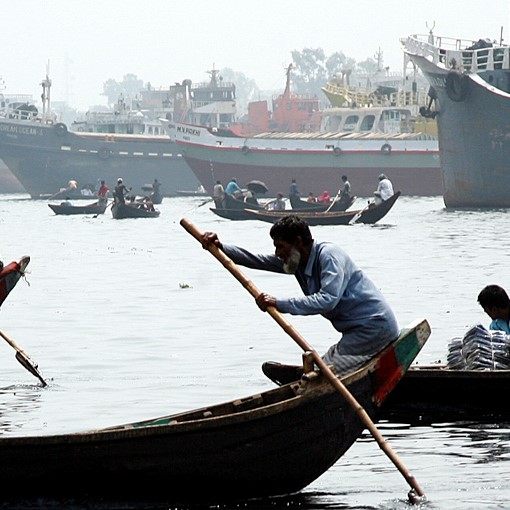Integrity Insights: The Grand Bargain Review
An independent review of the Grand Bargain agreement provides an opportunity to reflect on what works in the humanitarian assistance field. There are multiple actors and facets to humanitarian work. For those working on the ground the pact represents opportunities for localisation and the potential to target resources; for research and analysis teams the agreement outlines a way of working that involves collaboration and the need for clear decision-making. Here, Integrity’s CEO Anthony Ellis welcomes recommendations for greater aid transparency and shares how Integrity has put collaboration and listening at the centre of its work.
Pact
In a bid to enrich the aid ecosystem, the Grand Bargain agreement was signed in 2016, and aimed to ensure a better match between humanitarian need and available resources. The commitment, made between 18 donor countries and 16 International Aid agencies, called for clearer financial offers and institutional change. In practise this was a call for the world’s major donors and largest humanitarian organisations to make their spending more flexible, efficient, transparent, and effective.
Fast-forward to 2021 and climate change, global conflicts and COVID-19 have highlighted that effective assistance is needed more now than ever. So how has the Grand Bargain held up? A recent review by ODI identifies that improvements in collaboration with local partners are evident. However, the report also makes clear recommendations for ongoing improvements including a call for greater flexibility in funding models and strengthening support to local actors.
Responding to change
The recommendations are close to Integrity’s way of working. In the fast-paced, high-pressure context of a humanitarian crisis, saving lives and supporting stability is of paramount importance. To do so, decision-makers and implementers across the humanitarian, development and peace-building nexus need timely, quality, context aware and conflict sensitive information. This ensures effective and accountable assistance and policies that promote peace, resilience, and wider recovery.
Our work with international health partnerships is a good example of how we respond to the reality of on-the-ground situations. This work involved cross organisational learning and led us to support improvements between health systems and humanitarian and development stakeholders. The goal was to leverage existing capacities and optimise the potential to expand service delivery and accelerate progress towards universal health care (UHC).
Meanwhile, we are currently working with the Foreign, Commonwealth and Development Office (FCDO) and Stabilisation Unit (SU) on an independent evaluation of The Humanitarian Emergency Response Operations and Stabilisation programme. This evaluation will feed into the design of the ongoing humanitarian support function to ensure that the UK Government is ready and able to respond whenever and wherever there is a crisis. Alongside this, our work with the World Food Programme demonstrates their commitment to organisational change as they aim to embed evaluation into their culture of accountability and learning. Both initiatives show complexity awareness and the need for agile action that responds to real world issues.
Listening
At the centre of the Grand Bargain is the need for discourse. The review asks, amongst other things, for greater transparency in donor reporting and strengthening local support. This sounds straightforward in theory, but in dealing with uncertainty and in the context of conflict, this can be difficult in practise. In our experience, technology-led systems, communications platforms, databases and project management suites can help teams better understand the problems that they face and can lead to greater clarity.
Working with the people most affected by issues and listening to lesser heard voices is an essential component of our work. Integrity’s work in complex humanitarian settings in the MENA region, where we are working with the UK Government, relies on strong community engagement and transparent data management. This work puts closer societal links at the core and supports more sustainable and accountable solutions to protracted, complex problems. However, often we simply cannot share this work more widely. This is because we are always attuned to sensitivities and adopt approaches that are impactful but risk aware.
Working in this way is not always easy. We live in a rapidly changing world where time is often a resource that is in limited supply. Integrity’s projects require meticulous planning and monitoring but, as with the Grand Bargain agreement, they also rely on the ability to listen, to identify needs and work together to respond to uncertainty.
